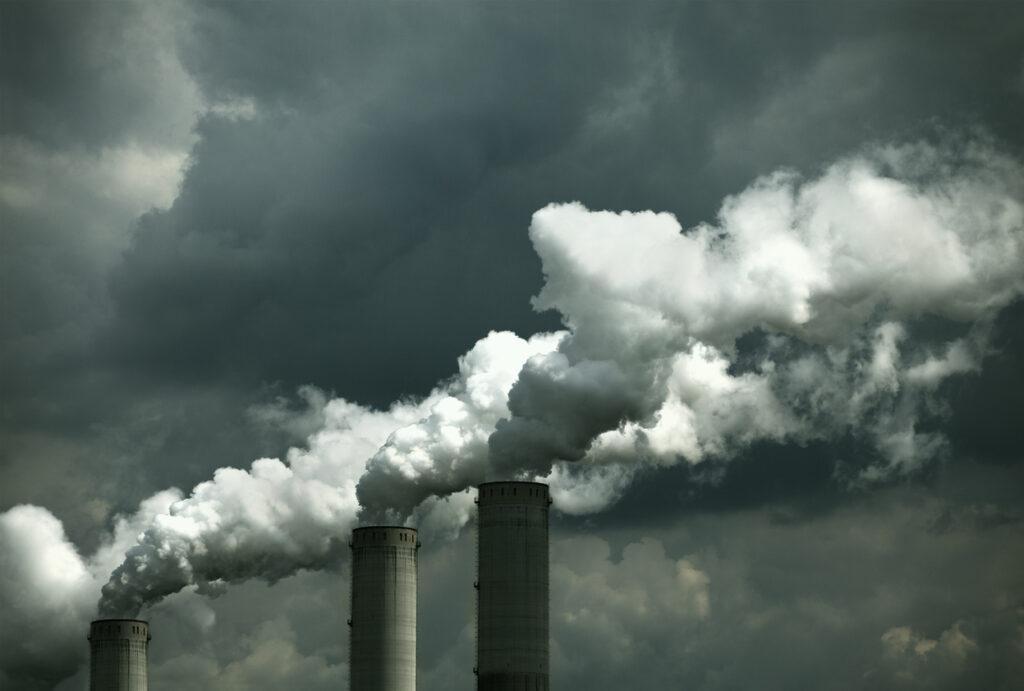It can be as simple as feeling upset or angry in the office kitchen, seeing colleagues eating from single-use plastic containers then dumping them, and the carrier bags they transported them in, into the regular bin.
The feeling of being alone in the face of a seemingly impossible task to save the planet can cause anxiety to spiral into despair. Despite us still reeling from the prolonged mental as well as physical effects of Covid-19, a new study by researchers based in Scotland shows most of us see climate change as a bigger threat to the world.
While increased awareness of global heating is critical to reversing and halting it, the constant coverage of the climate crisis can make us feel scared, stressed and depressed.
In spite of these daunting predictions and statistics the good news is that the physical or virtual workplace is an ideal space to build our personal and collective resilience so that we can adapt and innovate.
This climate crisis requires a social and relational solution, with people working together to ignite the creativity needed to make positive change.
Employers have a remarkable role to play not only in supporting their staff’s emotional and mental wellbeing, but in building strategies to help them become stronger with a positive knock-on impact for both the environment and the organisation.
It simply makes good business sense to invest in environmental projects that empower staff.
In another joint report published in February, the Climate Coalition and the Priestley International Centre for Climate estimate that more than 12 million people in the UK are vulnerable to adverse health because of climate-related events.
A straw poll of a sample of UKCP psychotherapists revealed that 90% were working with clients who are feeling frightened and even hopeless about the state of the planet.
Those emotions will increasingly spill over into workplaces. Stress, depression and anxiety are the major causes of employee absence in the UK, with each sufferer taking 21 days off on average each year, according to a 2020 Health and Safety Executive Report.
Symptoms of eco-anxiety
Here are some common mental symptoms of eco-anxiety:
- Depression and anxiety
- Panic attacks
- Existential dread
- Fatalistic thinking
- Obsessive thoughts about climate change
- Anger or frustration (especially towards groups who don’t care about climate change)
- Guilt or shame about your carbon footprint or lack of effort in the past
- Feelings of grief or sadness about irreversible damage to the environment or extinct species
- Post-traumatic stress from experiencing the effects of climate change
Mental distress is proven to impact physical health. Insomnia, headaches, stomach aches, and chest pain are also common symptoms of anxiety. For any employee experiencing these symptoms, both mentally and physically, for a long period of time, it can be beneficial to speak to a psychotherapist, checking they are suitably qualified, regulated and insured. No-one has to deal with this alone.
What’s the wider solution?
The solution isn’t to medicalise ‘eco-anxiety’ as an illness to be ‘treated’ with pills or fixed term blasts of cognitive behavioural therapy. It is a perfectly normal and rational response to be concerned for the environment. Merely papering over these feelings of hopelessness and powerlessness may be missing an incredible opportunity.
This climate crisis requires a social and relational solution, with people working together to ignite the creativity needed to make positive change.
Five tips for employees with eco-anxiety
For those experiencing eco-anxiety, here are five suggestions, based on psychotherapeutics, which involve little or no cost. Each one is configured to channel anxiety into positive action, collaboration and empowerment.
1. Work outdoors
Cancel Zoom for a day and have walking meetings instead. Provided the material isn’t confidential, it is quite possible to have a focused and productive meeting on foot or while seated in a park.
A University of Exeter study found that people who spend two hours per week in green spaces, even a park in a city centre, are more likely to report good psychological wellbeing than those who don’t.
The evidence is so compelling that some scientists have coined the term Nature Deficit Disorder for those who don’t step out. Being in a natural environment can reduce blood pressure and stress hormone levels, even boosting our immunity.
2. Co-create a climate change policy
Ensure the organisation is working towards its own environmental policy to help staff feel aligned with your values. It’s an oft-cited but true adage that the culture and wellbeing of an organisation is set at the top. As a CEO, I declared a climate emergency and made a public pledge to significantly reduce our carbon emissions by 2030.
Co-create the policy with employees to empower their voice and ensure the leadership team are held to account. The effects will also radiate to your rivals and stakeholders, creating a ripple effect.
3. Volunteering days
Allow staff paid time to volunteer on environmental projects, helping them to build supportive networks and make a direct difference. Making a positive impact on the local neighbourhood can help reduce eco-anxiety since your actions will have a butterfly effect: you’ll set an example for your peers who will start to follow your lead. Make sure the leadership joins in so that it doesn’t seem tokenistic.
4. Awareness events
Many environmental groups are happy to give talks. Hold awareness days where staff can share their fears or ask questions of climate experts. It will engender a sense of community and, most importantly, encourage staff to share their feelings with one another and experience the support of a like-minded group.
5. Staff-led environmental audits
Encourage the team to research the provenance of everything from the palm oil in the office biscuits to the ethics of the financial institutions they bank with. This will have the effect of spilling over into colleagues’ personal purchasing choices.
It’s time to step up
Just like climate change, eco-anxiety is not going away. Businesses must step up and support their staff as well as assess the wider impact their operations are having on the state of the environment. Imagine the impact if ten companies follow your lead?
Interested in this topic? Read ‘HR in a heatwave: what role do we play in climate change?‘
[cm_form form_id=’cm_65a14c3f5da64′]






